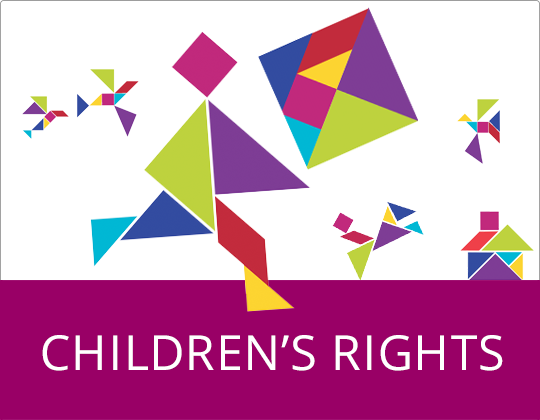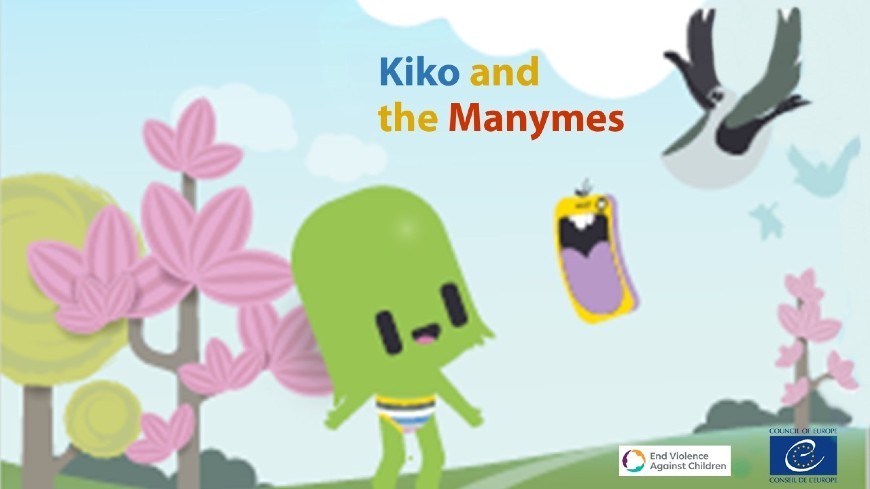The Council of Europe project to End Online Child Sexual Exploitation and Abuse@Europe (EndOCSEA@Europe) is happy to announce the launch of the new adventures of our beloved character friend Kiko who is now discovering screens and the misuse of pictures in the online environment in the video and storybook of Kiko and the Manymes. It also features Pipa, Kiko’s friend and confidant, the “magic whistle”, Skrin and the Manymes, who misuse Kiko’s pictures.
The objective of Kiko and the Manymes is twofold. Firstly, this campaign is addressed to adults, with a focus on parents and caregivers of children 4-7 years old, teaching them how to protect their children and avoid their exposure to phones with video and photo cameras or a webcam. Secondly, the experience of Kiko with screens in the book, which also present “the golden rules of screens”, provide a basic set of rules to empower children to protect their privacy and their image in the online environment.
These awareness-raising tools are currently available in English and will be translated shortly in French and Spanish as well as in the 10 languages of the EndOCSEA@Europe Project beneficiary countries, in order to reach a wide audience.
Why this initiative?
1 in 3 internet users worldwide is a child. Numbers are on the rise. While information and communication technologies bring many benefits to children, they also put children at risk, including very young children.
The age of users and potential victims of abuse continues to lower, with very young children being more exposed to harm. Children as young as 2 are using internet-enabled devices via gaming, entertainment and educational games and children of 5 to 7 years of age are using in-game messaging, voice and text chats.
Young children are particularly exposed to child sexual abuse and exploitation online with 28% of victims being below the age of 11. Nude and semi-nude pictures of children are regularly posted online by adults.
In some cases, very young children are groomed, deceived or extorted into producing and sharing a sexual image or video of themselves, sometimes in the child’s own room. This content may then be traded and exchanged, perpetuating a particularly pernicious form of child sexual exploitation and abuse which is on the rise. It is very difficult for victims to seek help and very challenging for law enforcement to identify the victims, prosecute the abusers and remove the content from the Internet.
Let’s keep children safe! Come and discover more about Kiko’s brand new adventure.
Acknowledgements:
The Council of Europe gratefully acknowledges the financial support provided for this programme by the End Violence Fund.
Kiko and the Manymes Video




